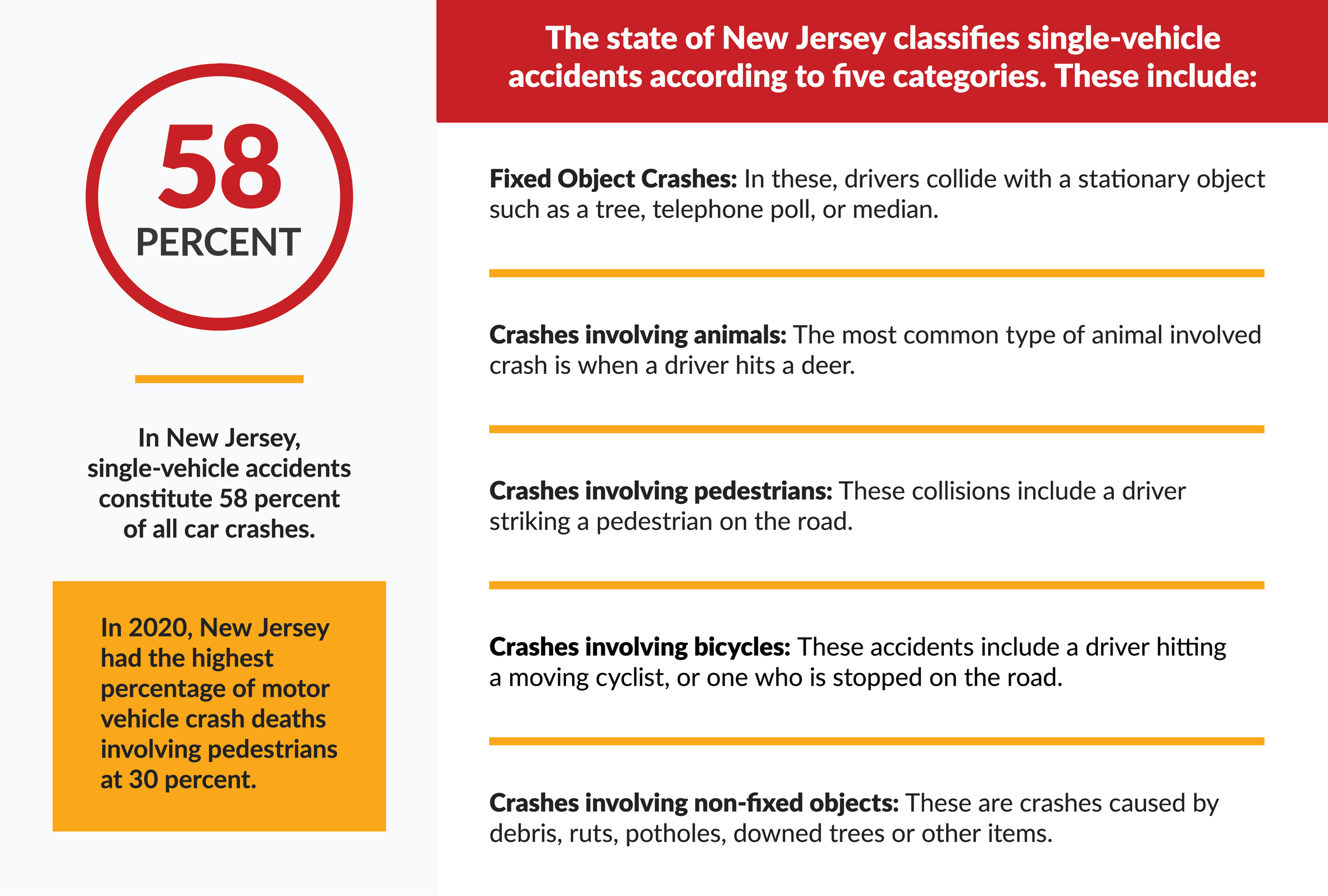Car accidents in New Jersey today remain a significant concern for drivers and residents alike. The state's bustling highways, high traffic volume, and varied weather conditions contribute to the frequency of collisions. Whether you're a seasoned driver or a newcomer to the state, understanding the causes, prevention strategies, and legal implications of car accidents is crucial for your safety and well-being.
New Jersey's roadways are among the most traveled in the nation, and with that comes an inherent risk of accidents. From minor fender benders to severe collisions, the impact of car accidents can be life-altering. This article aims to provide you with detailed insights into the latest trends, statistics, and actionable tips to help you navigate the roads safely.
By staying informed and proactive, you can reduce your chances of becoming involved in an accident. This guide will cover everything from understanding common causes of car accidents in New Jersey to knowing your rights if you are involved in one. Let's dive in and explore how you can protect yourself and others on the road.
Read also:Jan Haury The Untold Story Of A Rising Star
Table of Contents
- Latest Trends in Car Accidents in New Jersey
- Statistics and Data Analysis
- Common Causes of Car Accidents in New Jersey
- Effective Prevention Strategies
- Legal Implications of Car Accidents
- Understanding Car Insurance Requirements
- Road Safety Tips for Drivers
- What to Do After an Accident
- Role of Technology in Accident Prevention
- The Future of Road Safety in New Jersey
Latest Trends in Car Accidents in New Jersey
New Jersey has seen a fluctuation in car accident rates over the years, with certain trends emerging that provide insight into the state's road safety landscape. In recent years, there has been a noticeable increase in distracted driving incidents, which have contributed significantly to the rise in accidents. Additionally, the state has witnessed a higher number of accidents involving pedestrians and cyclists, reflecting the growing need for better infrastructure and awareness.
One of the key trends is the impact of weather conditions on accident rates. New Jersey's unpredictable weather, from heavy snowfall in winter to torrential rains in summer, poses challenges for drivers. Understanding these trends can help drivers prepare and adapt their driving habits accordingly. Furthermore, the state's efforts to improve road safety through stricter enforcement and public awareness campaigns have shown some positive results.
Key Factors Influencing Accident Trends
- Distracted driving
- Weather-related hazards
- Increased pedestrian and cyclist activity
- Urban congestion
Statistics and Data Analysis
Data from the New Jersey State Police and other authoritative sources reveal alarming statistics about car accidents in the state. In 2022 alone, there were over 200,000 reported accidents, resulting in thousands of injuries and fatalities. The data also highlights the most common types of accidents, such as rear-end collisions, side-impact crashes, and single-vehicle accidents.
A deeper dive into the statistics shows that certain demographics, such as young drivers and older adults, are at higher risk of being involved in accidents. Additionally, specific times of the day and days of the week see a spike in accident occurrences, emphasizing the importance of being extra cautious during these periods.
Notable Statistics
- Over 200,000 accidents reported annually
- Young drivers aged 16-24 account for 30% of accidents
- Weekend evenings see the highest accident rates
Common Causes of Car Accidents in New Jersey
Identifying the root causes of car accidents is essential for developing effective prevention strategies. Some of the most common causes include speeding, distracted driving, impaired driving, and failure to obey traffic laws. Each of these factors contributes to the likelihood of accidents, and addressing them requires a multifaceted approach.
Distracted driving, in particular, has become a major concern, with the widespread use of smartphones being a significant contributor. Drivers who engage in activities such as texting, making calls, or using navigation apps while driving are at a higher risk of causing accidents. Similarly, impaired driving due to alcohol or drug use remains a persistent issue that requires continued education and enforcement.
Read also:Denim Cole Braxton Lewis A Comprehensive Exploration Of Their Life Career And Influence
Top Causes of Accidents
- Speeding
- Distracted driving
- Impaired driving
- Failure to yield
Effective Prevention Strategies
Preventing car accidents requires a combination of safe driving practices, proper vehicle maintenance, and adherence to traffic laws. Drivers can significantly reduce their risk of accidents by adopting defensive driving techniques, staying alert, and avoiding distractions while behind the wheel. Regular vehicle inspections and maintenance also play a crucial role in ensuring road safety.
Education and awareness campaigns are vital in promoting safe driving habits. Programs that target high-risk groups, such as teenage drivers, can be particularly effective in reducing accidents. Additionally, advancements in vehicle safety technology, such as lane departure warnings and automatic braking systems, offer valuable tools for accident prevention.
Prevention Tips
- Practice defensive driving
- Stay focused on the road
- Regularly maintain your vehicle
- Follow traffic laws
Legal Implications of Car Accidents
Being involved in a car accident in New Jersey can have significant legal implications. The state operates under a no-fault insurance system, which means that each driver's insurance company is responsible for covering their own damages and injuries, regardless of who was at fault. However, there are exceptions where a lawsuit can be filed, such as in cases of severe injuries or fatalities.
Understanding your rights and responsibilities in the aftermath of an accident is crucial. It is advisable to consult with a qualified attorney who specializes in car accident cases to ensure that your rights are protected. Additionally, documenting the accident scene, gathering witness statements, and reporting the incident to the authorities are essential steps in the legal process.
Key Legal Considerations
- No-fault insurance system
- Exceptions for severe injuries
- Importance of legal representation
Understanding Car Insurance Requirements
New Jersey mandates that all drivers carry a minimum level of car insurance coverage. This includes liability coverage, personal injury protection (PIP), and uninsured/underinsured motorist coverage. Drivers must ensure that their insurance policies comply with these requirements to avoid penalties and legal issues.
Choosing the right insurance policy involves evaluating your needs, understanding the coverage options available, and comparing quotes from different providers. It is also important to review your policy regularly to ensure that it meets your current requirements and financial situation.
Insurance Coverage Options
- Liability coverage
- Personal injury protection (PIP)
- Uninsured/underinsured motorist coverage
Road Safety Tips for Drivers
Staying safe on New Jersey's roads requires a proactive approach. Drivers should prioritize safety by following basic driving principles, such as wearing seat belts, maintaining a safe following distance, and avoiding aggressive driving behaviors. Additionally, staying informed about road conditions and weather forecasts can help drivers anticipate potential hazards.
Technology can also play a role in enhancing road safety. Features such as backup cameras, blind-spot monitoring, and adaptive cruise control can assist drivers in avoiding accidents. Furthermore, participating in driver education programs and refresher courses can help improve driving skills and increase awareness of road safety issues.
Safety Recommendations
- Always wear your seat belt
- Maintain a safe following distance
- Avoid aggressive driving
What to Do After an Accident
In the event of a car accident, staying calm and composed is essential. The first step is to ensure the safety of all parties involved by moving to a safe location if possible. Calling emergency services and reporting the accident to the authorities should be a priority. Exchange information with the other driver, including names, contact details, and insurance information.
Documenting the accident scene with photos and notes can be invaluable in the claims process. Seek medical attention if necessary and report any injuries promptly. Finally, notify your insurance company and consult with a legal professional if needed to protect your rights and interests.
Post-Accident Actions
- Ensure safety first
- Call emergency services
- Exchange information
Role of Technology in Accident Prevention
Advancements in technology have significantly contributed to accident prevention efforts. Modern vehicles are equipped with a range of safety features designed to reduce the likelihood of accidents and minimize their impact. These include lane departure warnings, collision avoidance systems, and automatic emergency braking.
Additionally, mobile apps and navigation systems can help drivers avoid hazardous areas and receive real-time updates on road conditions. As technology continues to evolve, its role in enhancing road safety is expected to grow, offering even more innovative solutions for accident prevention.
Innovative Safety Technologies
- Lane departure warnings
- Collision avoidance systems
- Automatic emergency braking
The Future of Road Safety in New Jersey
The future of road safety in New Jersey looks promising, with ongoing efforts to improve infrastructure, enhance driver education, and leverage technology to reduce accidents. The state is investing in smart road systems that can communicate with vehicles to provide real-time information and warnings. Additionally, initiatives to promote safe driving habits and increase public awareness are expected to yield positive results.
As the population grows and traffic increases, it is crucial for all stakeholders, including drivers, lawmakers, and transportation authorities, to work together to create a safer road environment. By embracing innovation and maintaining a commitment to safety, New Jersey can continue to make strides in reducing car accidents and protecting its residents.
Future Initiatives
- Smart road systems
- Enhanced driver education
- Increased public awareness
Kesimpulan
Car accidents in New Jersey today remain a pressing issue that requires attention and action from all drivers and stakeholders. By understanding the latest trends, statistics, and causes of accidents, as well as implementing effective prevention strategies, drivers can significantly reduce their risk of being involved in an accident. Additionally, staying informed about legal implications, insurance requirements, and safety tips can help protect your rights and ensure a safer driving experience.
We encourage you to take proactive steps to enhance your road safety knowledge and share this article with others to promote awareness. For more information on car accidents and road safety, explore our other resources and stay connected for updates. Together, we can make New Jersey's roads safer for everyone.

